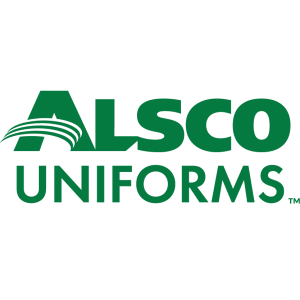
Good workplace hygiene can eliminate the spread of nasty illnesses and bacteria.
Employees are potential sources of harmful microorganisms so if good hygiene practices are not followed, infections can be transmitted very easily. Regardless of which industry your business operates, workplace hygiene should be prioritised to ensure the health and wellbeing of employees.
Managers and supervisors should be actively enforcing good hygiene practices in the workplace. They should also implement Training Programs to emphasise the safety and wellbeing of all employees. Let’s have a look at some of the most important ones below!
Personal Hygiene & Cleanliness
Staff members should always ensure that their personal hygiene is maintained regularly. This can be achieved by showering every morning or evening before work, examining their body for cuts or sores, wearing freshly laundered clothes after bathing. Here is a list of the main tips for personal hygiene:
- Brush your teeth twice a day – before breakfast and before bedtime. This helps to reduce the build-up of bacteria which can eventually cause tooth decay and gum disease. Also make sure to floss daily to maintain strong and healthy gums
- Hanging clothes in the sun to dry – sun rays can help kill germs and parasites
- Keep fingernails and toenails trimmed which can prevent health problems such as hangnails and infected nail beds. Clean and dry feet are less likely to contract athlete’s foot
- Hair maintenance: Keeping beards shaved or trimmed is also important. Ensure that hair is groomed and long hair is restrained to a ponytail or braid – ideal for any workplace requiring food-handling
- Regularly wash (or remove) jewellery because they contain potential contaminants from direct contact with the worker’s skin and hair. When handling food, heavy equipment or raw materials especially, jewellery should be removed before starting work
- Remove artificial nails or nail polish especially within the food processing industry
- Always wash before you apply makeup, lotion, lip balm or gloves. If these are applied to contaminated skin, accidental exposure can occur
Hand Hygiene
Hand hygiene is absolutely essential for all work environments. Worker’s hands are often ridden with many nasty germs and microbes, enabling contaminations and infections to be transmitted quickly. By washing your hands, the spread of diseases can be significantly minimised.
All employees should wash their hands whenever they perform specific activities such as prior to entering the processing/handling area, putting on protective hand gloves, after using the washroom, after picking an item off the floor. Hand washing should also be done after eating or drinking and smoking, after coughing or sneezing into hands, before or after handling a raw product, after handling potentially dirty items such as garbage, mops, brooms, labels, etc.
The following hand washing technique should be used to eliminate as many bacteria, moulds and viruses as possible and prevent any likelihood of contamination:
- Wash hands and wrists in potable water at the warmest temperature you can tolerate.
- Soap and Sanitiser: Use an adequate amount of antibacterial soap or hand sanitiser.
- Scrub hands thoroughly for 10-20 seconds. Ensure that the entire hand (front and back), exposed portions of the arm, between your fingers and under fingernails are washed.
- Rinse hands and wrists while making sure that all traces of soap are removed.
- Dry your hands with a disposable paper towel, then dispose of it in the trash bin provided.
Workplace Etiquette
Employees should be mindful of how their own personal hygiene impacts the rest of the workplace. By ensuring that they are doing simple hygiene practices through company-endorsed workplace etiquette measures, staff members can effectively control the spread of germs and viruses, which can mitigate the risk of health problems and contamination.
Workplace etiquette should be actively enforced across all levels of the organisation. Here are the main tips to ensure illnesses are eradicated:
- Cover your mouth whenever you cough – a single cough can expel around 3000 droplets. The lighter and smaller particles are less affected by gravity and can stay airborne almost indefinitely, making infection a huge threat!
- Sneeze the right way – you should sneeze into the crook of your elbow or your upper shirt sleeve rather than your hands. Unlike hands, elbows do not make direct contact with as many objects or surfaces, and germs won’t spread through clothing. Afterwards, you should use a tissue and place it immediately in the bin – wash your hands (see above) and dry them properly.
- Have a clean workstation – if your desk or office room is littered with garbage, computer cables, food or drink stains, or covered in dust, then your health and safety will be compromised. If anything has spilled, then proper clean-up and disposal procedures must be implemented. To prevent slip-and-fall accidents, floor mats can be placed strategically.
- Eat, drink or smoke in separate designated areas far away from where hazardous materials are used or stored. This can cause you to inhale or ingest the hazardous vapour or substance. Chronic exposure can also cause long-term health problems.
Garments & Workwear
Wearing protective safety garments is necessary to ensure optimal hygienic work environments.
Workplace garments can protect employees from heavy soil, grease or grime while also evoking a clean, professional image to customers. Specific industrial workwear can also provide ample security when performing intensive manual labour. Unsurprisingly, well-maintained uniforms can enhance morale, self-image, productivity and customer service.
Depending on the industry, garments can also vary with their benefits and purpose. For the hospitality (food and beverage) sector, employees should be equipped with aprons, overshoes and gloves. Staff members working in the healthcare or pharmaceutical industry should wear lab coats or overalls, overshoes, face masks, face hoods or respirators.
Alsco offers a dynamic range of workplace garments suitable for the hospitality, pharmaceutical, industrial and food processing industries. These uniforms combine style, comfort and durability to ensure that staff feel their best every day.
Do you want to ensure that your employees are following the proper hygiene practices in the workplace?
Not to worry – Alsco has got your business covered. We’ll provide you with different kinds of safety floor mats and protective garments to enhance hygienic conditions in the workplace.
As a highly reliable and professional organisation catering for the local businesses of the 21st century, Alsco is currently providing a peerless managed rental service to satisfied customers in Malaysia. It’s fast, convenient and affordable – perfect for your business’s hygiene requirements.


LEAVE A REPLY
Your email address will not be published. Required fields are marked *
You must be logged in to post a comment.